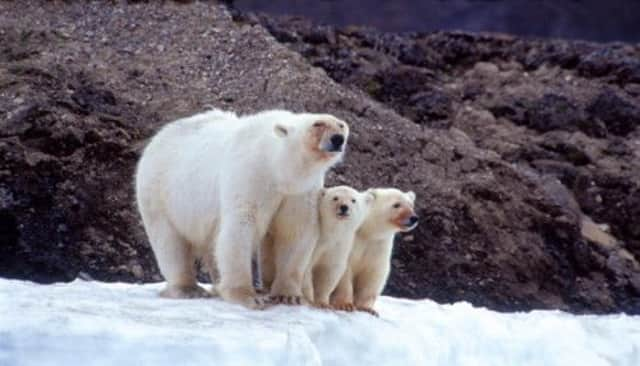Fears over land animal loss due to climate change


And more than half of plants could be hit the same way as habitats become unsuitable for numerous species.
The collapse of ecosystems would have major economic impacts on agriculture, air quality, clean water access and tourism.
Advertisement
Hide AdAdvertisement
Hide AdGlobal temperatures are set to rise 4C above pre-industrial levels by 2100 if nothing is done to stem greenhouse gas emissions.
This could have a hugely destructive effect on thousands of common, as well as rare and endangered species around the world, according to the researchers.
An estimated 57 per cent of plants and 34 per cent of animals were likely to lose half or more of their habitat range.
But the damage would be greatly reduced if emissions were scaled down in time, the study shows.
Losses are reduced by 60 per cent if global warming is cut to 2 per cent above pre-industrial levels, with emissions peaking in 2016 and then being reduced by 5 per cent a year. If emissions peak in 2030, losses are reduced by 40 per cent.
Lead scientist Dr Rachel Warren, from the University of East Anglia’s School of Environmental Science, said: “While there has been much research on the effect of climate change on rare and endangered species, little has been known about how an increase in global temperature will affect more common species.
“This broader issue of potential range loss in widespread species is a serious concern as even small declines in these species can significantly disrupt ecosystems.
“Our research predicts that climate change will greatly reduce the diversity of even very common species found in most parts of the world.
Advertisement
Hide AdAdvertisement
Hide Ad“This loss of global-scale biodiversity would significantly impoverish the biosphere and the ecosystem services it provides.
“We looked at the effect of rising global temperatures, but other symptoms of climate change such as extreme weather events, pests, and diseases mean that our estimates are probably conservative. Animals in particular may decline more as our predictions will be compounded by a loss of food from plants.
“There will also be a knock-on effect for humans because these species are important for things like water and air purification, flood control, nutrient cycling, and eco-tourism.”
The findings, published in the journal Nature Climate Change, are based on information from a biodiversity database listing 48,786 animal and plant species and computer-run climate simulations.
Reptiles and amphibians were especially sensitive to changes in the environments where they lived, the study showed.
The largest numbers of plants and animals were likely to be lost from sub-Saharan Africa, Central America, Amazonia and Australia. Major losses of plant species were also predicted for North Africa, Central Asia and south-eastern Europe.
A small proportion – 4 per cent of animals – were actually expected to benefit from climate change, increasing their habitat ranges by more than 50 per cent.